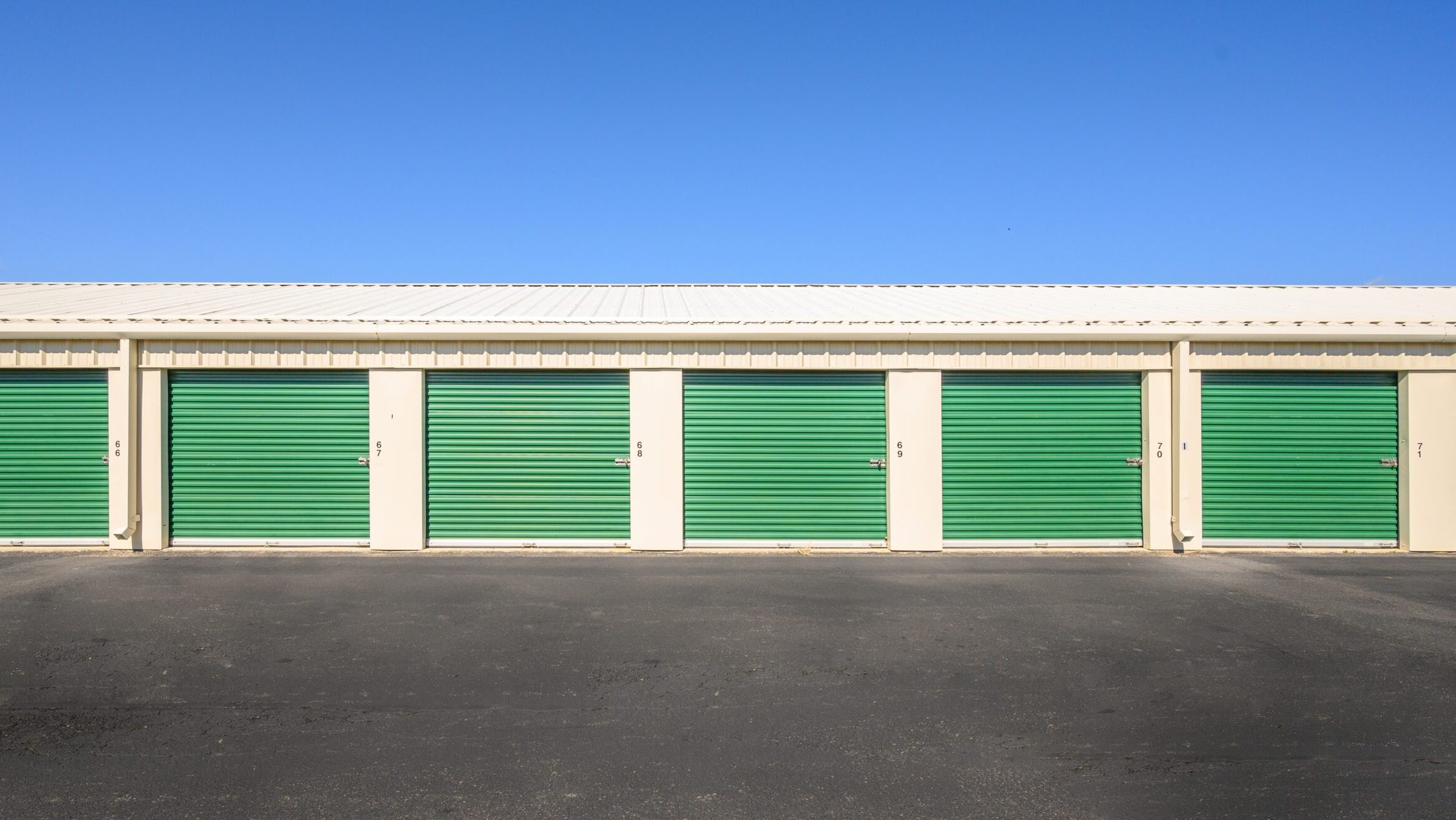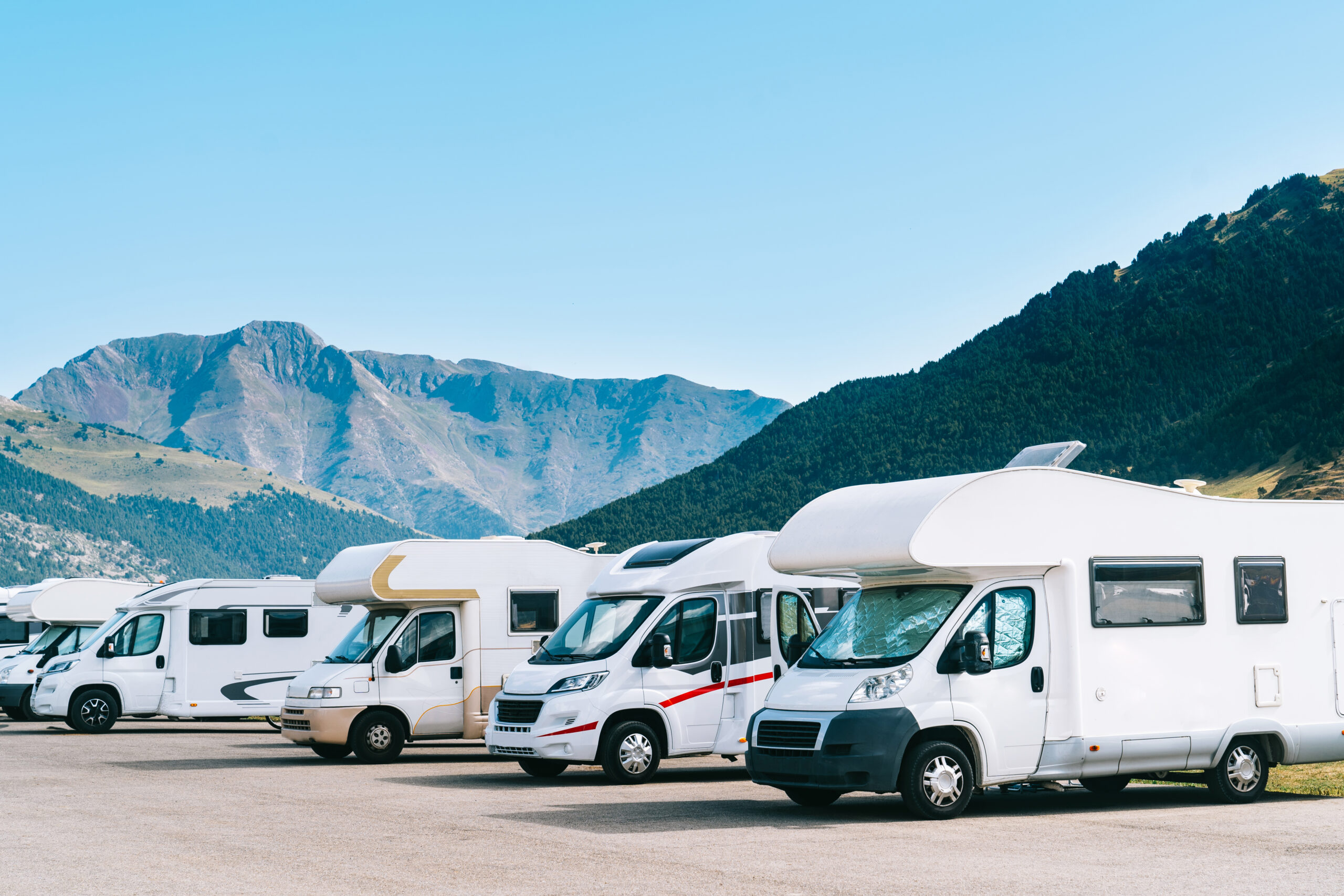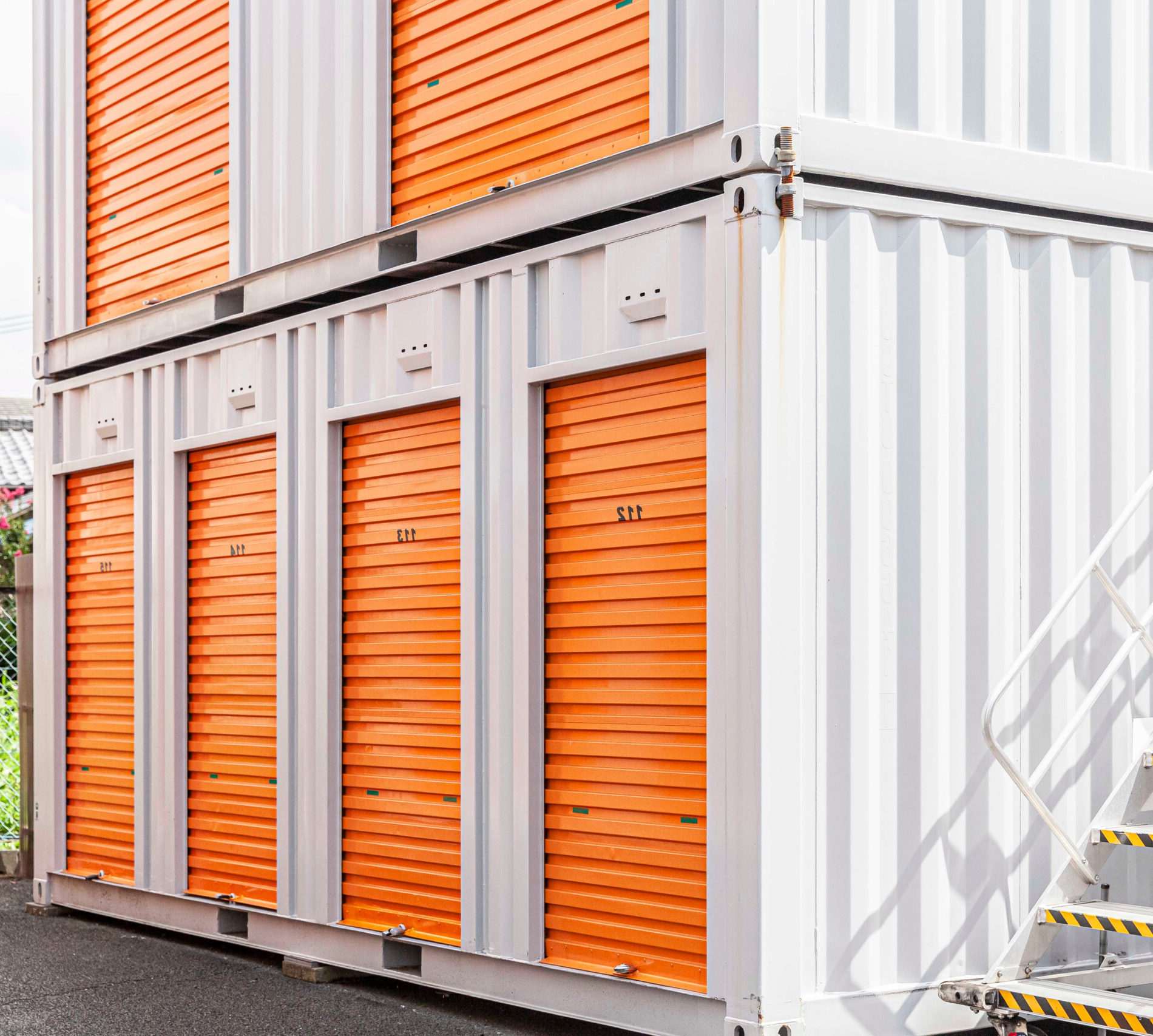Article takeaways
- Drive-up units are storage units with drive-up access are outdoor units where you park directly in front for easy loading. More affordable but exposed to weather with limited security.
- First-floor storage units are indoor units with climate control and better security features. Cost more but protect sensitive items like furniture and electronics.
- Choose based on your items – Use drive-up for heavy equipment or weather-resistant goods you access frequently. Use first-floor for delicate items needing temperature and humidity protection.
Ground level storage units typically come in two distinct flavors: Drive-up and first floor storage units. What is drive-up access storage? Drive-up storage units usually have outdoor exposure and allow you to park your vehicle directly in front of the unit for easy loading and unloading. Small business owners who need frequent access to inventory or equipment that is not climate-sensitive may prefer the convenience of a drive-up unit.
First-floor units are located inside the storage facility and offer amenities like climate control and security monitoring to protect and preserve items sensitive to temperature and humidity. These units are ideal for storing furniture, appliances or other more delicate items.
The convenience and suitability of your self storage unit make all the difference when it’s time to move in and manage your belongings. You want to make the right choice upfront, to avoid frustrations and inconvenience down the road. The one best suited to your needs depends on the types of convenience of amenities most important to you.
How do you choose? Let’s dive in and explore the pros and cons of each, to help you make your best and most informed decision.
Park, Unload and Go: The Benefits of Storage Units with Drive-Up Access

The main selling point of storage units with drive-up access is their ease of access. These freestanding outdoor units resemble small garages or sheds and are designed to prioritize quick access by allowing you to park your car directly in front of the unit. This setup allows you to easily load, unload and access your unit without worrying about blocking other units, or navigating hallways and elevators.
Drive-up storage units were first popularized in the 1960s alongside the growth of the entrepreneur class, which needed solutions for secure, off-site housing for their business inventory and tools. They appreciated these ground-level storage units for their easy access and suitability for storing large and heavy items. These types of storage units proved to be perfect solutions for the evolution of the business class, and have become popular for personal use as well.
Why Choose First-Floor Storage? The Advantages of Indoor Storage Units

Think of first-floor storage units as the more refined sibling to outdoor storage units with drive-up access. If you need additional amenities to safely store your belongings, a climate-controlled indoor ground-level unit will offer you the best flexibility, safety and security for your money.
This is the unit to choose when you are storing furniture, appliances, electronics, documents, or sensitive business inventory. A first-floor storage unit is also an ideal choice if features like round-the-clock security, controlled building access and protection from outdoor elements are priorities.
You’ll find first-floor storage units located within a storage facility building at the ground level. Unlike upper-level storage units that require elevator access, these ground level storage units offer the easiest indoor access to units with more available amenities. First-floor storage is an ideal solution if you need to move heavy items or get in and out quickly.
Drive-Up vs. First Floor Storage: Ground Level Storage Unit Key Comparisons
Let’s take a look at how storage units with drive-up access compare to first-floor storage units:
| Features & Amenities | Drive-Up Storage Unit | First-Floor Storage Unit |
|---|---|---|
| Convenience | • Parking directly in front of unit • Easy unloading and moving of heavy/bulky items from vehicle into unit |
• Easy ground-level indoor access • No stairs or elevators |
| Weather Protection | • Exposure to rain, snow or heat during loading | • Protection from rain, snow or heat during loading |
| Climate Control | • Rarely climate-controlled • Interior temperatures may be uncomfortable when loading and accessing unit • Not suitable for sensitive items |
• Climate-controlled units often available • Comfortable interior temperature when loading and accessing unit • Suitable for sensitive items |
| Security Features | • Standalone units are generally more exposed • Some facilities may offer gated access and routine security patrols |
• Typically more secure due to indoor building access • May offer 24-7 monitoring and surveillance • Closer proximity to onsite staff |
| Cost | • Generally more affordable due to fewer amenities | • May cost more due to availability of additional features |
| Accessibility | • 24-7 access at most locations • Ideal for regular visits |
• Easy access during business hours • May offer 24-7 building access |
| Vulnerabilities | • Stored items have limited protection from elements | • Distance from vehicle to unit may be longer than drive-up unit |
Making the Smart Choice: Which Ground Floor Storage Unit is Right for You?
The type of storage unit that is right for you will depend on your needs, tolerances and budget. The nature of the materials and goods you wish to store will drive much of your decision-making process as well, because you want to ensure your items are held in a safe, secure location that is suitable for their long-term protection and preservation.
Drive-up storage is ideal for:
- Loading and accessing large, heavy or bulky items
- Businesses that need frequent inventory access
- Heavy-duty equipment or vehicle storage
- Short-term or long-term use where the local climate and weather are not priorities
First-floor storage is ideal for:
- Storing valuable or sensitive items
- Items that require secure, climate-controlled environments
- Homeowners who need to store household items or furniture
- Short-term or long-term use for items that need protection from weather and climate changes
Need More Help Deciding Which Ground-Level Storage Unit is Best for Your Needs? Here Are a Few Questions to Ask Yourself

If you’ve read this far, you’ve familiarized yourself with the pros, cons and differences between first-floor storage and ground-level storage units. However, if you are still unsure which type of storage unit is the best fit for your specific storage needs, our handy decision guide can help you think through your scenario to arrive at an answer that will work for you.
Ask yourself the following questions:
1. How much can I afford to spend?
It’s always a good idea to take a preliminary look at the costs of available units in your area before you lock down anything. Consider the size and amenities you need, and how long you expect to keep the unit.
Remember that, while drive-up units will usually give you more bang for your buck, they do so at the expense of fewer amenities. First-floor storage units will usually cost more because they offer more amenities, such as climate-control and additional security.
As you think through your budget and your options, ask yourself if you need or want the extra amenities a first-floor unit provides. You don’t need to spend for security and climate control if neither you nor your goods will need them–but don’t skimp on this amenity if you plan on packing away anything that could be damaged by improper storage. You may save a little money upfront, but that could be far more costly for you down the road.
2. How often will I visit?
The expected frequency of visits to your storage unit can help you narrow down the types of convenience you need, which is a key consideration when choosing the right unit.
Unless your items require weather and climate control, a storage unit with drive-up access may be the right call. This is a no-fuss option that lets you pull right up to the door of your unit, granting you immediate access to your goods. Most facilities do not restrict hours for access to these types of storage units, which adds more convenience and flexibility should you need them.
3. What am I storing?
Heavy equipment, large bulky items and anything that is not sensitive to changes in climate and temperature are a good fit for a drive-up storage unit. You can move items directly from your vehicle into your unit, avoiding hauling up stairs or fitting into elevators.
If your items are delicate or require protection from heat, cold and moisture, a climate-controlled first-floor storage unit is hands-down the optimal choice. Furniture, papers, textiles, electronics and appliances are all excellent candidates for first-floor storage.
4. How much space do I need?
Storage units with drive-up access are often offered in larger sizes, and are a great fit for expansive equipment or inventory that is impervious to changes in the weather and temperatures.
First-floor storage also comes in a range of sizes from which to choose. These units may not be quite as expansive as the largest drive-up unit, but most facilities offer units with plenty of space to store several rooms’ worth of household goods and furniture.
Evaluate your needs for space especially carefully. Measure exceptionally large items or pieces that will collectively take up a lot of space, and consider visiting a facility in advance to ensure you are choosing a unit that is the right size to store everything you intend to house.
For Your Convenience: The Ground-Level Storage Unit Essentials
Storage units with drive-up access and first-floor storage units both offer convenience and efficiency, the right choice just depends on which type you need.
A drive up unit is the most affordable and convenient option for frequent loading and visits, and is a great, low-frills choice for items that do not need layers of security or protection from climate changes and the elements.
An indoor, first-floor unit is better suited for household goods and sensitive items that need the protection of a climate-controlled environment. These units may cost a bit more than a drive-up unit, but renters who need additional security and access to on-site staff may appreciate these features as value-adds to their total monthly cost.
Your choice between these two types of storage units ultimately rests with your needs, priorities and budget. If you’re ready to dig in and find the perfect ground-level storage unit, our in-depth search tool will help you find an ideal, affordable self storage facility near you.






